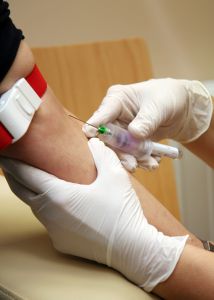Charity runs and ribbons and awareness fliers are common for a number of ailments, including breast and prostate cancer.

Certainly, those are worthwhile causes. However, our Boston Social Security Disability Insurance attorneys recognize that kidney disease, which garners far less attention, actually affects more people and kills more Americans than these other conditions combined.
Kidney disease results in some 90,000 American deaths annually.
In cases where it’s not fatal, the cost of treating end-stage kidney disease, either with a transplant or through dialysis, is through the roof – more than five times what Medicare pays annually for the average patient over the age of 65, according to a recent report by The New York Times. Many of those who are living with the condition are no longer able to work.
This is where SSDI benefits become a critical lifeline for people. Because while we know quite a bit about who is most at risk, how it can be prevented and even how we can halt its progression in the earlier stages, all of this does little unless people are tested. A lot of doctors fail to conduct simple, inexpensive tests for about three-quarters of those who are most at risk for poor kidney functions. That means most people generally don’t find out there is a problem until it’s the disease is in its most advanced stages.
It’s estimated that more than 25 million Americans have kidney disease, but many of them don’t yet know it. Another 75 million are at risk of developing it.
The American Journal of Kidney Disease in April published a study showing how common lifestyle factors can harm the kidneys. Researchers combed some 15 years’ worth of data involving about 2,300 young adults. What they found was that individuals who smoked, were overweight and had diets low in fruit, nuts, whole grains and dairy and high in sugary drinks, sodium and red meats were at the greatest risks. Only 1 percent of people who had none of these risk factors developed the disease.
The group deemed at the highest risk was African Americans who had high blood pressure, diabetes or a family history of kidney disease and who regularly consumed fast food, red meat and sugary drinks.
People who are suffering from end-stage renal failure generally will qualify for SSDI benefits. As outlined in Sections 6.02 and 6.06 of the Social Security disability listings, a person with this condition will qualify for benefits if he or she has:
- The need for regular dialysis;
- Undergone a kidney transplant;
- High levels of creatine with symptoms of damage;
- Nephrotic syndrome.
The administration is likely going to ask for an extensive background of your medical history that is going to include records of all your hospitalizations, laboratory findings and medical treatment notes. Any evidence that shows a continued deterioration of your kidney’s function will be important as well.
Even if you are unsure about whether your condition may qualify you for benefits, it won’t hurt to consult with an experienced SSDI attorney to help you determine your odds.
If you are considering filing for SSDI in Boston, call for a free and confidential appointment at (617) 777-7777.
Additional Resources:
Kidney Disease, an Underestimated Killer, July 15, 2013, By Jane E. Brody, The New York Times
More Blog Entries:
COPD Patients Less Frequently Hospitalized, May Still Need SSDI, July 15, 2013, Boston Social Security Disability Lawyer Blog
 Massachusetts Social Security Disability Lawyers Blog
Massachusetts Social Security Disability Lawyers Blog

